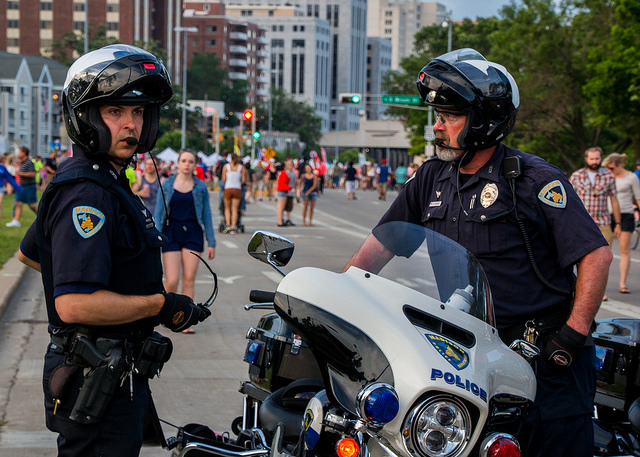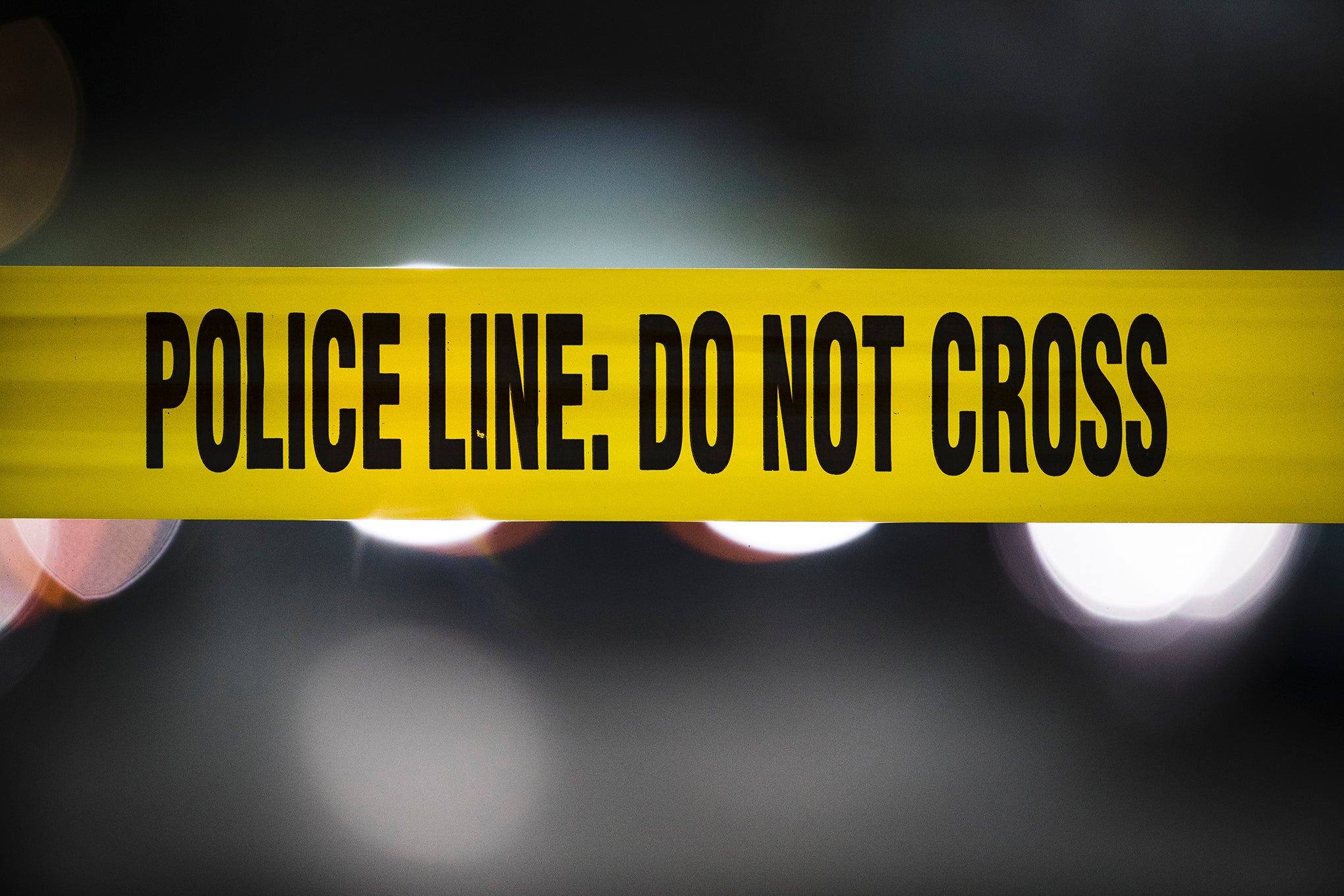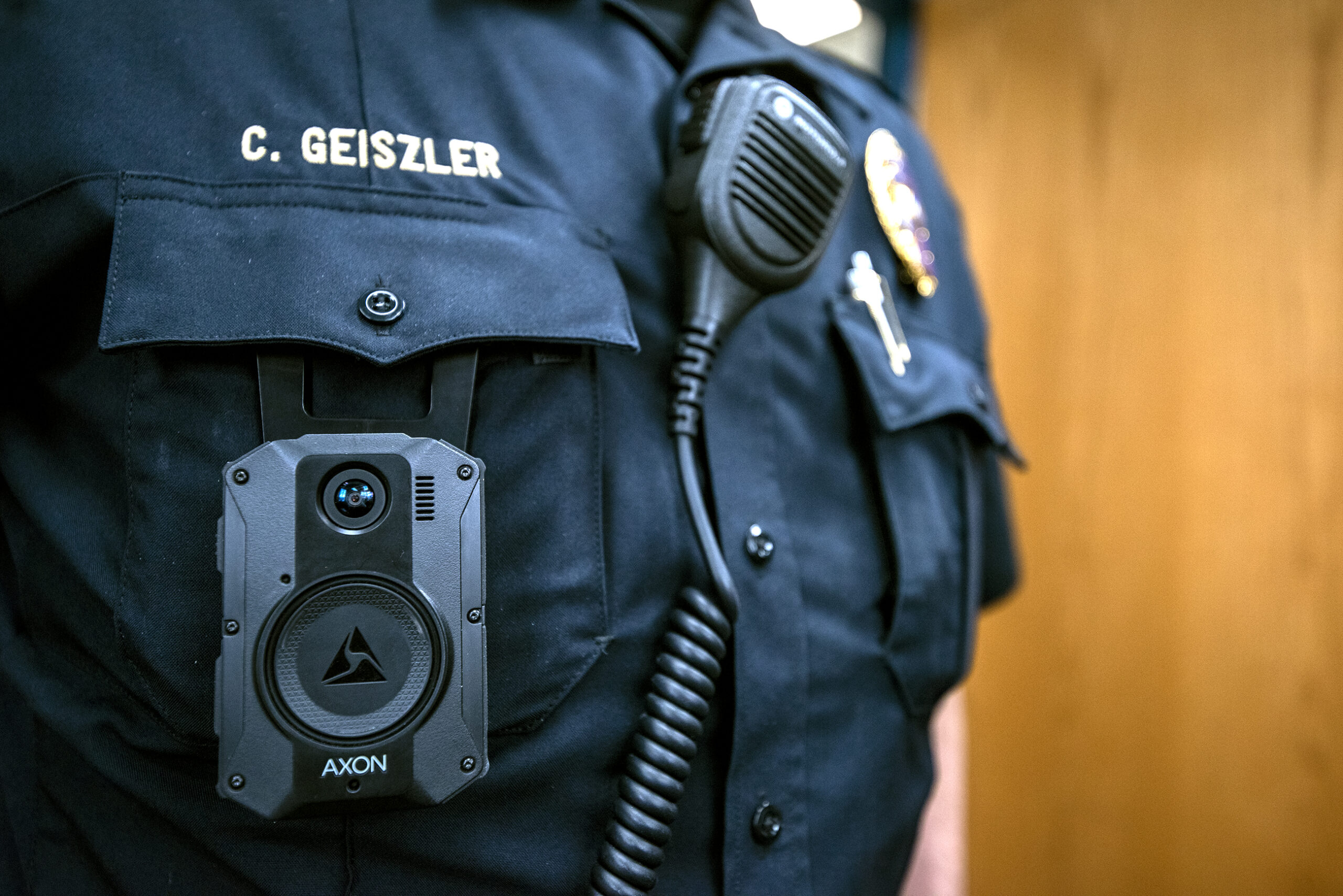Though many small police departments across Wisconsin have been using body cameras to record police interactions for months, bigger cities have yet to get programs off the ground.
Police departments in cities like Whitewater and Janesville have been outfitting officers with body cameras for a least a year, but larger cities like Milwaukee, Madison and Green Bay have faced setbacks in rolling out similar programs.
According to Green Bay Police Chief Thomas Molitor, one of those challenges is figuring out how to store the large amount of data collected by the cameras. Wisconsin law dictates that the footage must be stored for at least four months.
Stay informed on the latest news
Sign up for WPR’s email newsletter.
The cost of the cameras, especially for large departments buying lots of them, is also an obstacle.
“It’s different for a department of a dozen officers or 25 officers,” said Jed Dolnick, the chief of the Jackson Police Department and president of the Wisconsin Chiefs of Police Association. “When you have hundreds and hundreds of officers that you need to outfit, not necessarily giving each officer their own but just distributing (to) those that are out every day and every night patrolling — that can still be very expensive.”
The American Civil Liberties Union has voiced concerns about the potential of police body cameras to invade citizens’ privacy. However, Chris Piszczek, the youth and program organizer at the Wisconsin ACLU, said the benefits outweigh the risks.
“Police will have to think about how they carry themselves more when interacting with civilians on an everyday traffic stop,” said Piszczek.
The Milwaukee Police Department announced on Saturday that it had field-tested a variety of body-worn cameras during the summer of 2013 and has plans to begin a 50-camera pilot program.
Wisconsin Public Radio, © Copyright 2024, Board of Regents of the University of Wisconsin System and Wisconsin Educational Communications Board.




